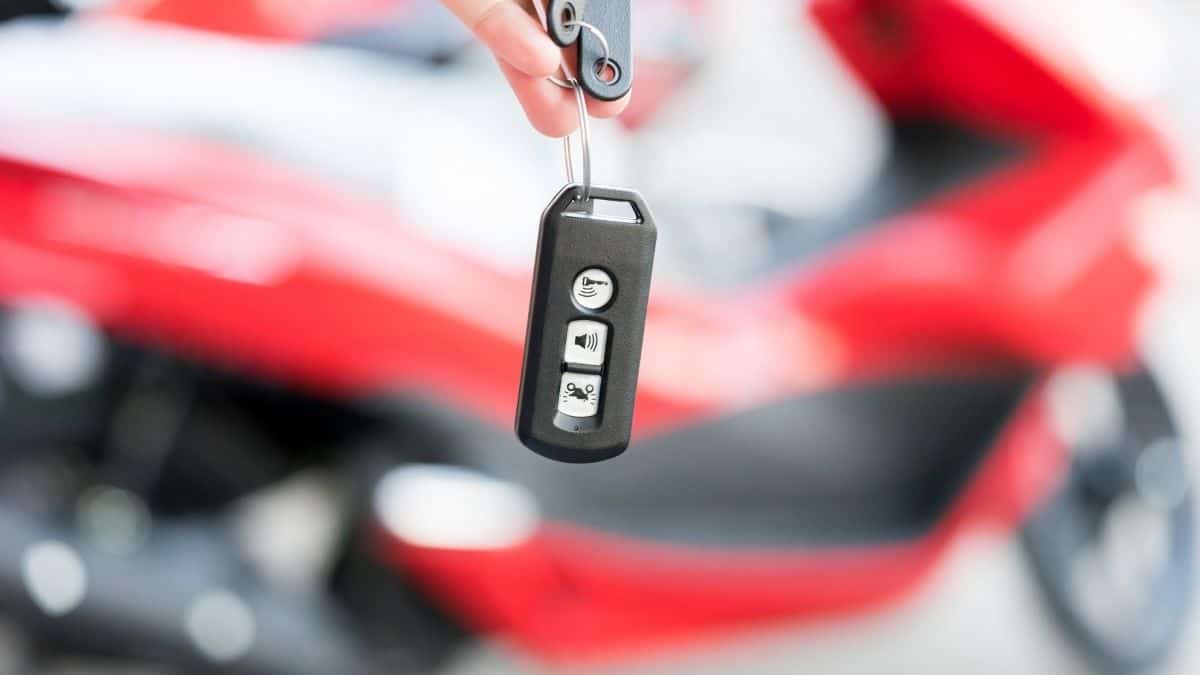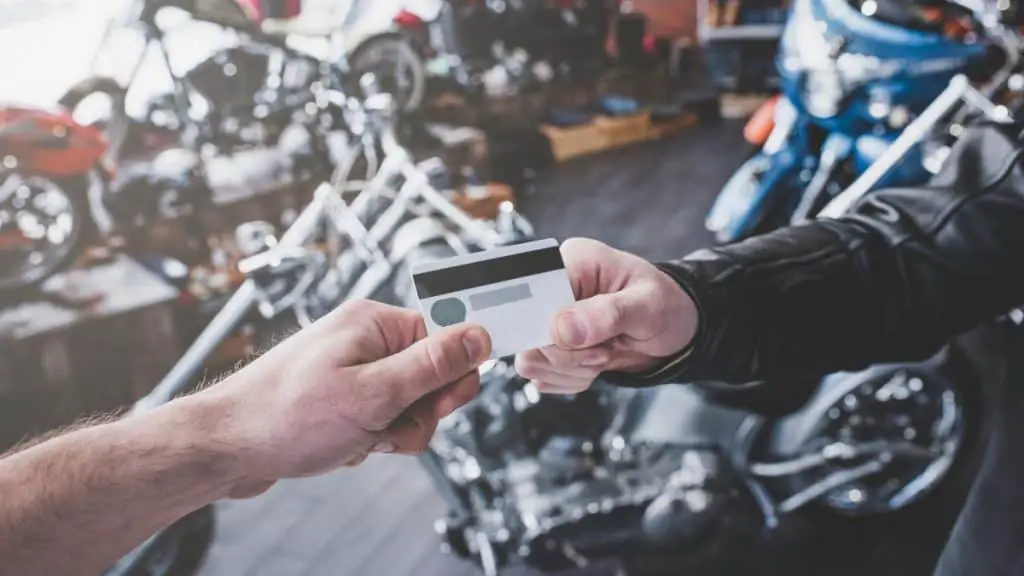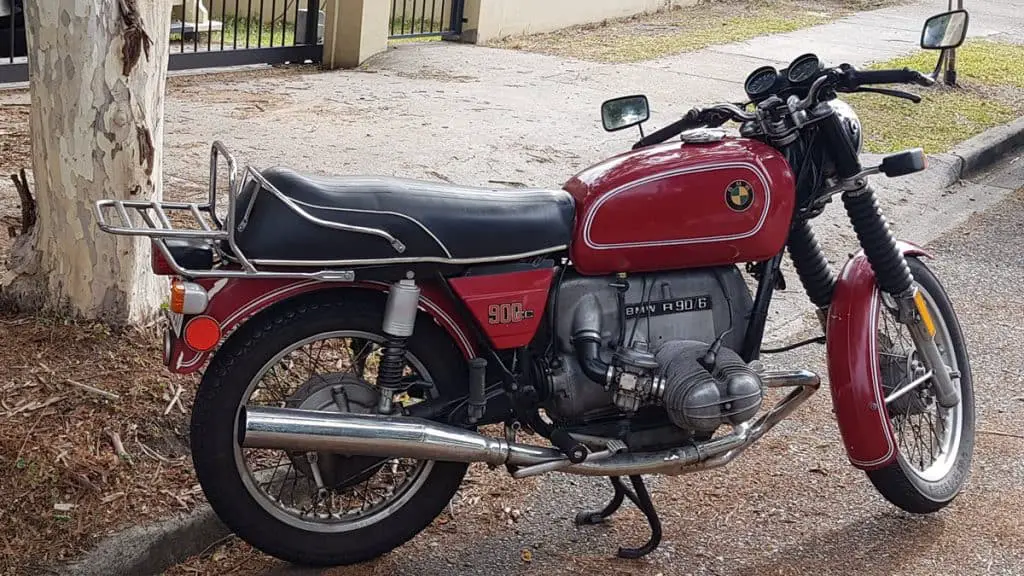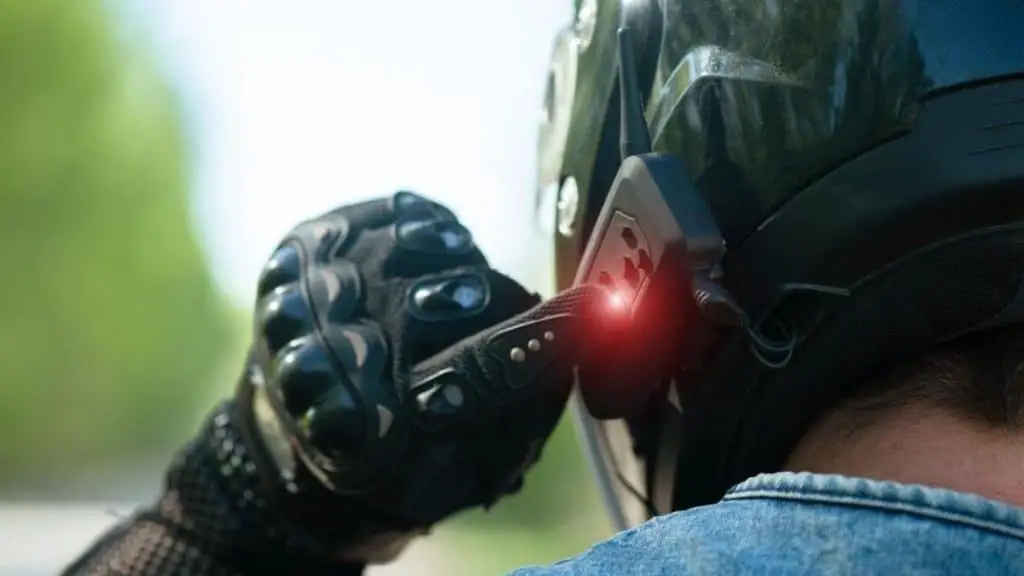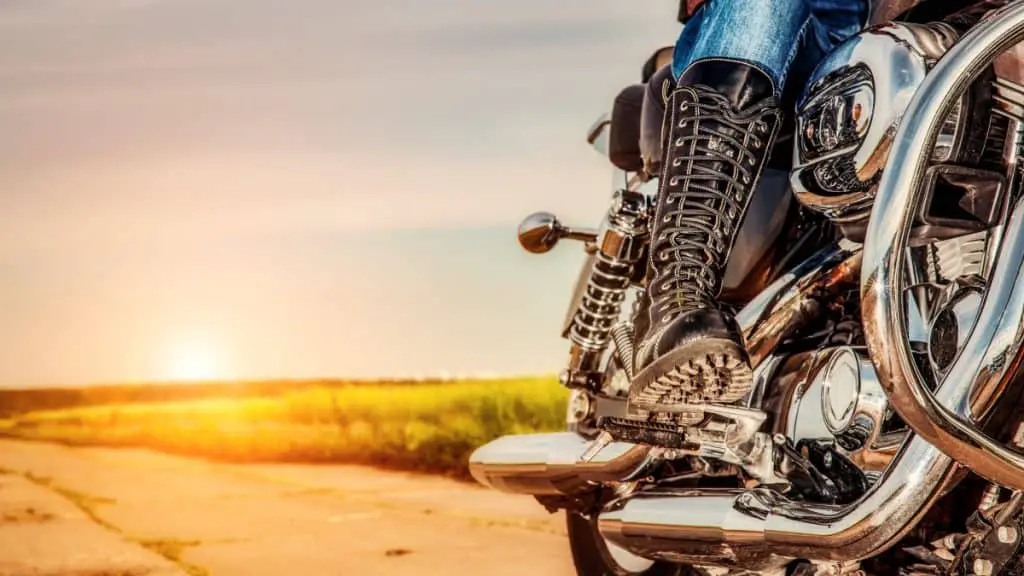How To Find Out If A Motorcycle Is Stolen
Buying a motorcycle is a big deal, but it’s easy to become the victim of a scam. ‘How to find out if a Motorcycle is Stolen’ will give you all the answers you need to prevent this from happening.
In this article, we will give you the information you need to ensure your newly purchased pride and joy is legit. Just as important, though, we will reveal the telltale signs of a suspect sale that will get those motorcycle-buying senses tingling.
The chances of purchasing a brand new motorcycle that is stolen are slim, so here, we will refer only to used motorcycles.
Related post: Best Motorcycle Insurance Companies (2024)
The Top Ten Questions You Should Be Asking
- Are there legitimate reasons for a motorcycle being too good of a deal?
- Does the motorcycle look right? Is there damage to steering locks, etc.?
- Does the seller and place of sale appear reliable?
- Is there a legitimate reason for viewing the motorcycle at night?
- Will the seller give you the motorcycle VIN to check?
- Does the VIN look tampered with, as in is it over-stamped or worn off?
- Does the bike have a title and all the correct paperwork?
- Are the title and paperwork a match with the motorcycle?
- Will the seller agree to a notarized bill of sale?
- Is the seller being way too pushy about wanting to seal the deal?
Six Golden Rules
- Take your time looking over the motorcycle and comparing the paperwork and Vehicle Identification Number (VIN).
- Ask someone to go with you for a second opinion and safety reasons.
- If in any doubt, walk away from the prospective deal.
- Don’t feel obligated to buy.
- Don’t be hurried into making a snap decision.
- If you discover the motorcycle is stolen, inform the police straight away.
The sad truth is, motorcycle theft is on the rise. And there is now a greater chance than ever before of coming across a stolen motorcycle hidden amongst the sale ads.
Before arranging to view a motorcycle, the old saying ‘Too Good to be True’ should be your first line of self-defense. Despite its age, make, or model, everything has a market value. If you see a bike advertised that appears to be in excellent condition but is super cheap, look upon it as a warning sign to dig deeper.
While crazy bargains do exist, they’re as rare as an honest politician! The seller may be covering something up, such as crash damage, or they may be attempting to shift a stolen motorcycle. The golden rule is, look over the bike with a fine-tooth comb.
When viewing a motorcycle to buy, you should also check out the paintwork. If it’s not original, look for signs that it’s been carried out in a hurry. These could include a poorly executed job or overspray on the frame.
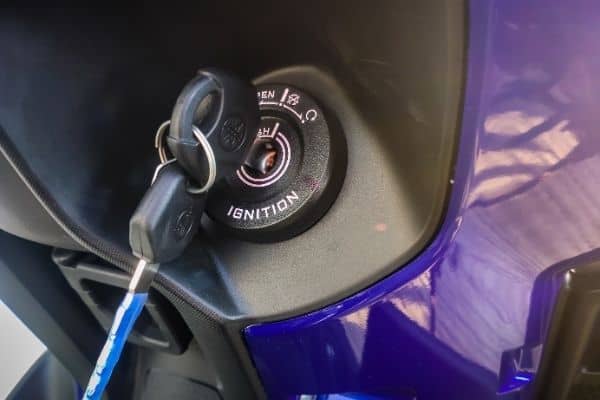
Does the bike have two matching keys? Also, make sure the steering lock works. One key and a broken steering lock is often an indicator of skullduggery.
Most unmodified motorcycles will have a VIN along with engine numbers. Yet, some customized motorcycles may have either a modified stock frame or a custom frame or engine.
Some motorcycles have their ID numbers on the frame under the seat. A café racer conversion with a modified subframe may see this removed. Alternatively, a goose-necked frame could also mean there are no headstock numbers.
In cases like this, there should be an engineer’s report available. This report will state the work undertaken and whether the original numbers are re-stamped.
The same goes for a new engine. Companies like S&S, for example, issue a Certificate of Origin. But the golden rule is, if the paperwork doesn’t tie up with the motorcycle in question, walk away.
The bike may or may not be stolen, and despite a blood oath sworn by the seller that it’s kosher, if you go ahead with the purchase, you are responsible. Not having the correct or legal documents could see it impounded pending further investigation.
And last but not least, arrange to view the bike in daylight. Darkness and dimly lit garages can hide a multitude of sins. If seeing the motorcycle at night is unavoidable, take a torch, take your time and take a friend.
Documentation 101
Service History: While not a legal requirement, it’s always a good idea to have a service book. Make sure to check that the bike’s details and those in the service book match.
Warranty: No private seller will supply a warranty, so this point relates to purchasing from a dealer. As usual, check that the details of the bike and paperwork match. If they don’t, the warranty is invalid.
Title (Pink Slip): To give it its full name, the Certificate of Title should be in possession of the person selling the bike. This document is a big deal because it has all the essential information related to the motorcycle.
Apart from a box marked ‘Vehicle History,’ which tells you if the bike’s been crashed or scrapped, it should also reveal the owner’s name and address. You will be able to check that the vehicle’s licensing plate number, make, model, and year details match. Don’t forget to look at the odometer reading too.
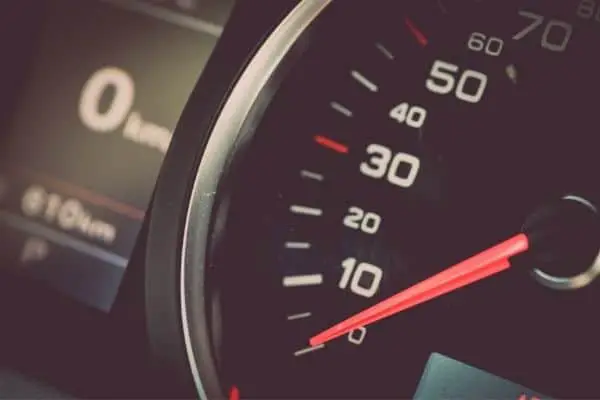
The most important information is the Vehicle Identification Number (VIN). This code is 17 digits long and made up of numbers and letters. You need to check that the VIN on the title corresponds with the VIN on the bike.
The VIN location can differ from make to make, but you can often find it on the frame near the headstock. The digits will be stamped into the metal or on a plate that is fixed in a permanent position.
There are a couple of important things to remember when checking that the numbers match. Number one, all vehicles from 1981 onwards will have a 17-digit alphanumeric VIN. This sequence is industry standard, so if it doesn’t pan out, create a diversion and run.
Number two; don’t confuse the VIN with the engine number. The engine number is usually stamped into the crankcase or base of the cylinder block. This number
gives information on the displacement and manufacture year.
The engine number can also be alphanumeric and consist of 9+ digits but does not appear on the title.
Titles In Other Countries
In the UK, a title document is known as the Log Book or V5C. It contains more or less the same information and includes both plate and VIN. A V5C may also state the engine number.
Australians call it a ‘Rego’ or Registration Document. Meanwhile, most European countries are more formal, referring to it as a Vehicle Registration Document.
What if the motorcycle has no title?
Either the seller will have a genuine tale of woe as to why they haven’t got one, or the bike is so hot you’ll need oven gloves to ride it home. You will have to rely on common sense here. If the seller is genuine and you’re viewing the bike at their home, it may still be legitimate.
To further fog the issue, vintage bikes may not have a title. Meanwhile, some states will issue a transferable registration. This document is a ragged piece of paper that resembles an old transit pass.
Bear in mind that although it’s possible to register a legal title, it’s time-consuming and convoluting. If it weren’t, everyone with a stolen bike would be doing it. Some organizations will do this for you, but you will need to budget for around $500. Alternatively, negotiate it within the sale price of the motorcycle.
If you are the legal owner applying for a replacement title is no big deal. If you are interested in buying the motorcycle, tell the owner it’s on the condition that they first apply for a replacement title. If they say no, carry on motorcycle shopping.

Floating Title
As mentioned earlier, check the title details against the bike. Remember though, irregularities do occur. The seller may have a floating title, which means that the document is not in the current seller’s name and address.
Technically, this isn’t legal. It may be that the title is signed, and the sale is on behalf of a friend or relative. It could also mean they bought the bike intending to flip it, and by not amending the title, they’re ducking out of paying taxes.
Either way, double-check every piece of paper and make sure they relate to the motorcycle. Don’t forget, once you’ve bought the bike, the problem becomes yours.
If you’re still bothered by the lack of title, tell the seller you want a notarized bill of sale. This process is inexpensive, and once again, it won’t be a deal-breaker for a legit seller.
Should I ask for the VIN?
Yes, 100 percent. A legitimate seller should have no problem giving you the VIN over the phone. Some sellers may be cautious and say they’ll give it to you when you see the bike in person. Either way, get the number before you part with any hard-earned money.
What do I do with the VIN?
As the VIN is a global standard, the relevant vehicle licensing authority will have a facility to check the details. You can also do this yourself online, for free.
This type of search gives basic information on the vehicle and registered owner. Opt for a paid search, and the information is more detailed. It includes everything from factory recall info to outstanding finance or crash damage.
We recommend CycleVIN for detailed online VIN checks. Their service is super easy to use and the reports are very detailed. You can see a sample report by clicking here.
A genuine seller will give you the VIN, and as a basic search will cost you nothing, ignore this step at your peril.
What happens if I discover I’ve bought a stolen motorcycle?
Stealing a motorcycle is classed as Grand Theft Auto and comes with jail time so if you suspect this is the case, inform the police at once.
The type of people who sell stolen bikes may have done this many times before. Their huge repertoire of BS as to why they don’t have the correct paperwork will be believable, and their distraction techniques well-rehearsed.
The prognosis for buying a stolen vehicle isn’t good. Discover your new bike is stolen, and you have no legal right to keep it. In which case, the motorcycle will either get returned to the original owner or their insurance company.
You’ll be left with nothing but a hole in your wallet. Also, the onus will be on you to convince the police you played no part in the theft or handling of stolen goods.
Don’t be conned, sweet-talked, cajoled, or even threatened into buying a motorcycle. If you’re not 100 percent happy that the bike and the sale are legal, walk away.
Ignorance, naivety, and over-enthusiasm are not a legal defense. And ‘How to Find Out if a Motorcycle is Stolen’ will give you all the information you need to steer clear of dodgy deals.

